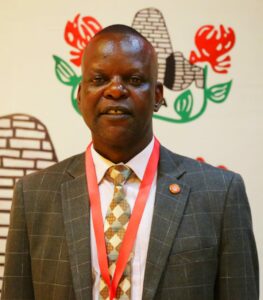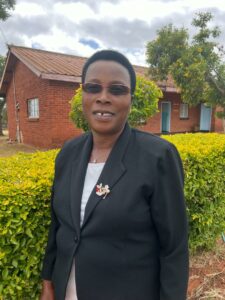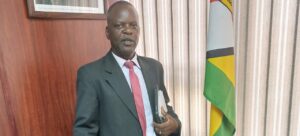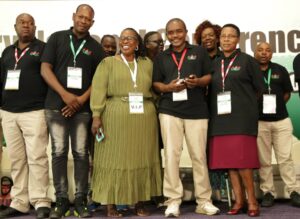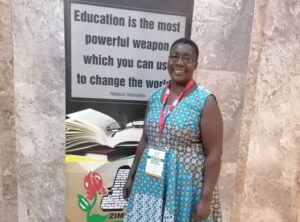SADC teachers have stood in solidarity for the delayed 2021 World Teachers Day celebrations held virtually by UNESCO ROSA in Harare on 8 October 2021 as they shared various teaching experiences during the Covid-19 pandemic.
The teachers echoed different sentiments as each country had a representative who explained in brief on how that country’s educators handled teaching during the Covid-19 pandemic.
A representative from South Africa who made a presentation during the celebrations said he had managed to use different media platforms in order for learning to continue.
“We managed to do online lessons with the students but we had challenges with those who could not afford ICT devices and we came up with the idea that their parents come to school to collect work for them which kind of worked for us because we did not want to leave anyone behind.
“We also used national broadcasters especially television to conduct lessons which was an advantage because of other subjects that needed practicals and through television students could not grasp concepts easily, but again there are those with no televisions at home who were definitely left behind.”
Zimbabwean teacher Axilia Musekiwa shared her teaching experiences saying she used whatsapp platform for sending and receiving school work from students.
“Whatsapp seemed to be the only platform that was better to use for most of the students because l managed to cover some major topics. The challenge l faced was that some students could not manage to write their work in time because they had to wait for their parents to come back from work in order for them to have access to their parents’ cellphones.
“In Zimbabwe we also managed to do radio lessons which were organized by the Ministry of Primary and Secondary Education with support from UNICEF Zimbabwe.
A representative from Malawi said their Government supported home learning through radio programmes and online learning which was available for different subjects.
“44% of learners had access to a radio in their household, either through a radio itself or a phone. This was higher in urban compared to rural areas. This can be attributed to the high levels of poverty among the learners, it was reasonable to assume that learners without mobile phones are also less likely to have radios. Most learners could not be reached by distance teaching methodologies which rely on technology. Instead, we provided home learning packs including books, worksheets, pens and paper, and re-trained CBE facilitators to support home learning. We also provided information to parents and community members about how to help students to continue learning while at home. Facilitators met their learners once a week in groups of three or four at specific locations within the community.”
Research has shown that on average, students retain 25-60% more material when learning online compared to only 8-10% in a classroom. This is mostly due to the students being able to learn faster online; e-learning requires 40-60% less time to learn than in a traditional classroom setting because students can learn at their own pace, going back and re-reading, skipping, or accelerating through concepts as they choose.
World Teachers’ Day is a global observance celebrated each year to commemorate the signing of the UNESCO/ ILO recommendations on the status of teachers. This day was first celebrated in 1994 and has been observed worldwide on the 5th of October annually.
At least 10 SADC countries were represented in this virtual celebration. Teachers from Zimbabwe described the virtual event as a huge success and a massive notes exchanging and learning opportunity.

‘ZIMTA believes in female teacher empowerment’
The Zimbabwe Teachers Association (ZIMTA) Chief Executive Officer Dr Sifiso


